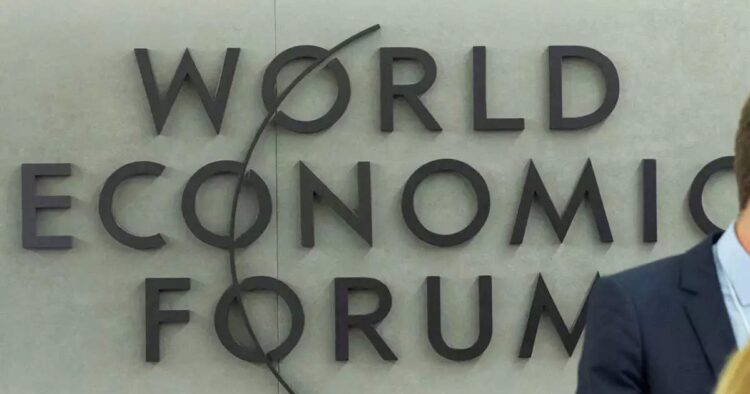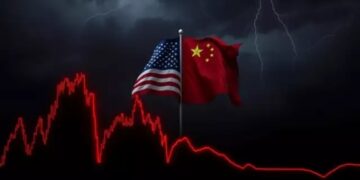The World Economic Forum at Davos is buzzing with India’s vibrant presence, as the country shifts the spotlight to its female leadership and burgeoning startup ecosystem. Bharat’s prominence comes after surpassing China as the world’s most populous country, and its focus on innovation and business is catching the attention of global investors.
As China’s economic growth slows down, Bharat’s rapid development, with a 7.2% growth in the last fiscal year, stands out as a promising opportunity for investors seeking bright spots. The Davos event features major Indian tech giants like Wipro, Infosys, Tata, and HCLTech, showcasing the nation’s prowess in key technologies, particularly artificial intelligence.
Various Indian states, including Maharashtra, Tamil Nadu, Telangana, and Karnataka, have established their presence at Davos, positioning themselves as tech hubs for manufacturing and AI. This regional competition underscores Bharat’s ambition to offer the best access to global companies, signaling a competitive spirit among different states.
Despite the optimistic atmosphere, Bharat faces challenges such as significant emigration and a weakened rupee against the dollar. “Price sensitivity” among consumers and businesses remains a key risk identified by the International Trade Administration, questioning whether India can make doing business easier and sustain global investment.
However, foreign direct investment has surged in recent years, reaching $70.9 billion in 2023, compared to $36 billion in 2014 when Prime Minister Narendra Modi took office. Major international companies like Dell, HP, Lenovo, and Apple are committing to local production in India, taking advantage of the country’s production-linked incentive scheme.
Bharat’s push to attract U.S. chipmakers is gaining momentum, with companies like AMD and Micron announcing substantial investments in semiconductor facilities. Jack Hidary, CEO of SandboxAQ, highlights Bharat’s accelerating adoption of technology, particularly in AI, which presents an opportunity for the country to stand out globally.
As India asserts itself on the world stage, the upcoming general elections in April-May add to the significance of the year. During Modi’s tenure, major U.S. tech companies, including Alphabet, Meta, and Amazon, have made substantial investments in Bharat, strengthening its position as a global business hub.
In contrast to China’s challenges on the world stage, Ian Bremmer, president of Eurasia Group, emphasizes Bharat’s stability as a democracy, citing a popular leader and upcoming uncontroversial elections. The decentralized nature of the country, with states competing for investment, sets Bharat apart and positions it as a strong contender for further growth and influence on the global stage.

















Comments